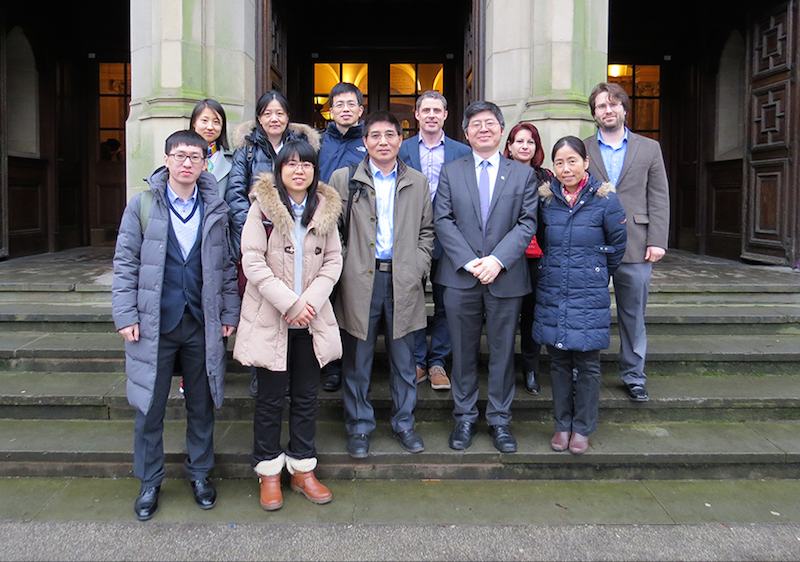Environmental experts from the Chinese Academy of Sciences (CAS) visited their counterparts recently at the University of Birmingham to continue work on a research partnership that could help solve major problems facing both countries.
Just two weeks after an inaugural joint workshop in Beijing, discussions continued in Birmingham about how joint research could help to reduce the health threat posed by severe air pollution blighting the Chinese capital and other major cities in China.
Researchers also explored ways in which to combine expertise in chemistry, hydrology, toxicology and biology to solve problems associated with pollutants that are increasingly threatening China’s natural fresh water ecosystems that over 1.3 billion people depend on.
China’s Ministry of Environmental Protection describes its waters as toxic, estimating that 60% of China’s rivers, and 80% of underground wells, suffer from pollution to such an extent that they can no longer be safely used as drinking water.
The UK visit also saw University of the Chinese Academy of Sciences (UCAS) representatives agree in principle to work with their Birmingham counterparts to establish a postgraduate programme that would see students awarded joint PhD and Masters degrees from both universities.
Professor Jon Frampton, Deputy Pro-Vice-Chancellor and Director of the University of Birmingham’s China Institute, said: “China’s problems were once our problems – the environmental issues faced by the Chinese people are similar to the problems created by Britain’s own industrial revolution.”
“As a global ‘civic’ university, we have a responsibility to enriching the life of our home city and the wider world. We are proud to welcome our partners at the Chinese Academy of Sciences to the University of Birmingham, as we continue to work together on finding common solutions to shared problems.
“We believe our joint efforts can make a significant contribution to helping China balance economic development against environmental health protection.”
The inaugural joint workshop on 5 January at the Research Centre for Eco-Environmental Sciences, Beijing, was opened by University of Birmingham Vice-Chancellor Professor Sir David Eastwood and former Vice President of CAS Professor Jinghai Li and involved eight Birmingham scientists.
Professor Dr. Liang-Hong GUO, Principal Investigator of the Research Group of Environmental Bioanalysis for State Key Laboratory of Environmental Chemistry and Ecotoxicology (SKLECE), said: “Environmental Sciences is a multi-disciplinary field requiring people with backgrounds in chemistry, biology and medicine. Inter-disciplinary collaboration is vital and our visit to the University of Birmingham has presented us with many opportunities in this field. I’m sure that there will be many opportunities for us to work closely together in the future.”
Today’s visit strengthens existing links between the University of Birmingham and CAS. It sees Chinese and British researchers continue working together strategically to plan how they can make a greater impact in environmental sciences in the UK and China. They plan to do this by developing long-term programmes in collaborative research, staff/student exchanges and developing new technologies.
The visitors received a tour of environmental research facilities at the University’s College of Life and Environmental Sciences, as well as an overview of the work at the Centre for Computational Biology (CCB) and Birmingham Institute of Forest Research (BIFoR).
